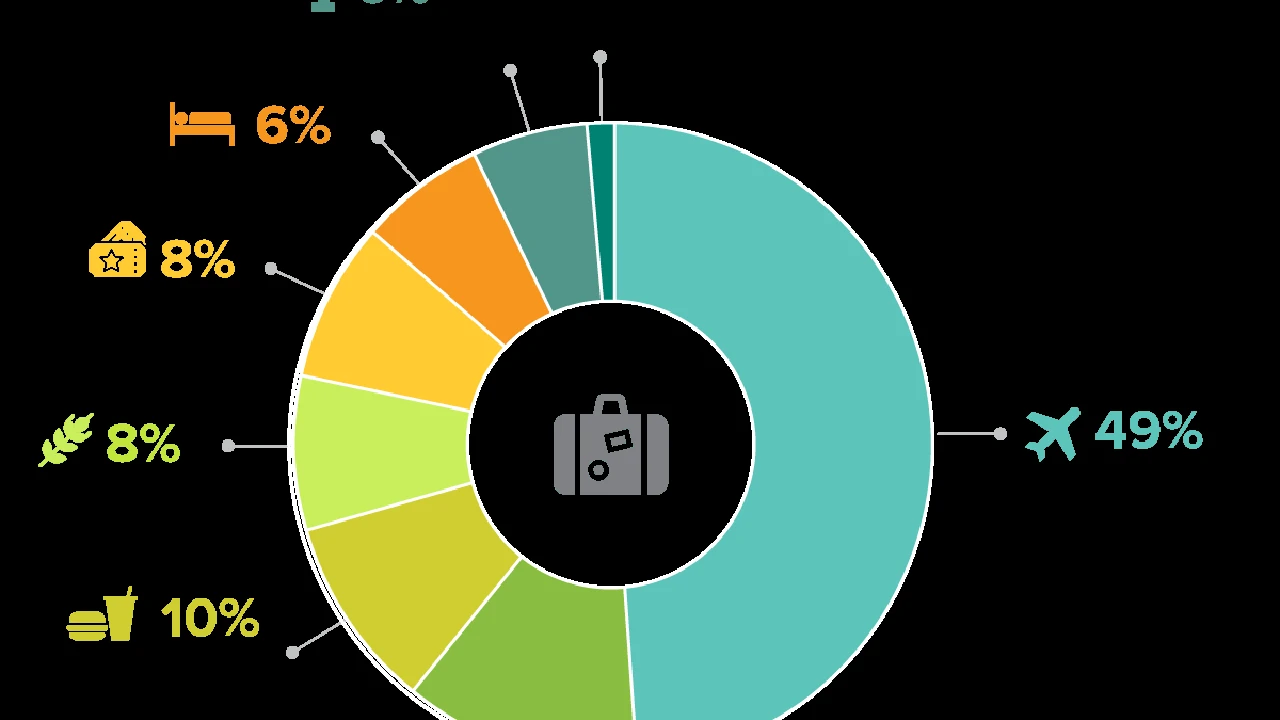Europe Travel: Sustainable Tourism Tips for US Visitors
Sample meta description.

Planning a Sustainable European Trip Your Eco-Friendly Adventure Starts Here
So, you're dreaming of cobblestone streets, charming cafes, and breathtaking landscapes in Europe? Awesome! But before you pack your bags, let's talk about making your trip a little greener. Sustainable tourism isn't just a buzzword; it's about traveling responsibly and minimizing your impact on the environment and local communities. As US visitors, we can be particularly conscious of our travel footprint. Ready to dive in?
Choosing Eco-Friendly Transportation Options in Europe Train Travel and Beyond
Forget hopping on a plane every few hours! Europe boasts an incredible rail network. Trains are often faster, more comfortable, and way more eco-friendly than flying. Plus, you get to see the scenery! Consider a Eurail pass for extensive travel. For shorter distances, look into local buses and trams. Many cities are also becoming increasingly bike-friendly – rent a bike and explore!
Product Recommendation: Eurail Pass – starting around $300 for a select number of travel days within a specific period. Usage Scenario: Ideal for traveling between multiple countries or cities over a few weeks. Comparison: Compared to individual train tickets, a Eurail pass can save you money if you plan to travel frequently by train. Price: Varies based on duration and number of countries included.
Sustainable Accommodation Green Hotels and Eco-Friendly Stays in Europe
Where you stay matters! Look for hotels and guesthouses that are committed to sustainability. Check for certifications like Green Key or EU Ecolabel. These certifications mean the accommodation is actively working to reduce its environmental impact through energy conservation, water reduction, and waste management. Airbnb can also be a great option – look for hosts who are transparent about their sustainability practices.
Product Recommendation: Bookings through websites like Bookdifferent.com, which specifically lists eco-friendly hotels. Usage Scenario: Planning your accommodation for any European city or region. Comparison: Offers a curated list of sustainable options, saving you time researching individual hotels. Price: Hotel prices vary widely, but Bookdifferent.com focuses on finding eco-friendly options within your budget.
Packing Essentials for Sustainable Travel Your Eco-Friendly Travel Kit
What you pack can make a big difference. Here are a few essentials for your sustainable travel kit:
*Reusable Water Bottle: Ditch the plastic bottles and stay hydrated!
*Reusable Shopping Bag: Perfect for groceries, souvenirs, and everything in between.
*Solid Toiletries: Shampoo bars, conditioner bars, and solid soap reduce plastic waste.
*Bamboo Toothbrush: Biodegradable and eco-friendly.
*Travel Towel: Lightweight and quick-drying, saving space and reducing laundry.
*Reusable Cutlery Set: Avoid single-use plastic cutlery when eating on the go.
Product Recommendation: Lush Shampoo Bars – around $12 each. Usage Scenario: Replacing liquid shampoo in your travel bag. Comparison: Solid shampoo bars are lighter, take up less space, and eliminate the need for plastic bottles. Price: $10-$15 per bar.
Eating Local and Sustainable Food Exploring European Cuisine Responsibly
Food is a huge part of the travel experience! Support local farmers and restaurants by eating seasonal, locally sourced food. Visit farmers' markets and try regional specialties. Avoid restaurants that serve endangered species or contribute to unsustainable fishing practices. Look for vegetarian and vegan options – plant-based meals generally have a lower environmental impact.
Product Recommendation: A local food tour in the city you are visiting. Platforms like Airbnb Experiences offer these. Usage Scenario: Immersing yourself in the local food culture and supporting local businesses. Comparison: More enriching than just eating at random restaurants; you learn about the food and the people behind it. Price: Typically $50-$100 per person.
Respecting Local Culture and Customs Engaging with European Communities
Sustainable tourism isn't just about the environment; it's also about respecting local culture and communities. Learn a few basic phrases in the local language. Be mindful of local customs and traditions. Support local businesses and artisans. Avoid contributing to overtourism by visiting popular destinations during the off-season or exploring lesser-known areas.
Minimizing Waste and Reducing Your Environmental Impact in Europe
Be mindful of your waste! Recycle whenever possible. Avoid single-use plastics. Bring your own reusable bags and containers. Choose products with minimal packaging. Pack out everything you pack in. Leave no trace behind.
Product Recommendation: Stasher Bags – reusable silicone food bags, starting around $12 each. Usage Scenario: Storing snacks, sandwiches, or leftovers on the go. Comparison: A sustainable alternative to disposable plastic bags. Price: $10-$20 per bag, depending on size.
Supporting Local Economies and Businesses Your Spending Choices Matter
Your spending choices can have a big impact on local economies. Shop at local markets and independent stores. Stay in locally owned guesthouses and hotels. Eat at family-run restaurants. Avoid buying souvenirs that are mass-produced or imported. Support businesses that are committed to ethical and sustainable practices.
Water Conservation Tips for Responsible Travelers in Europe
Water is a precious resource, especially in certain parts of Europe. Be mindful of your water usage. Take shorter showers. Turn off the tap while brushing your teeth. Report any leaks you see. Choose accommodations that have water-saving initiatives in place.
Energy Conservation Tips for Eco-Conscious Travel in Europe
Conserve energy whenever possible. Turn off lights and appliances when you leave your room. Unplug chargers when they're not in use. Choose accommodations that use renewable energy sources. Consider taking the stairs instead of the elevator.
Responsible Souvenir Shopping Ethical and Sustainable Gifts from Europe
Skip the mass-produced trinkets and opt for souvenirs that are locally made and ethically sourced. Look for handmade crafts, regional specialties, and fair-trade products. Support local artisans and businesses. Avoid buying souvenirs made from endangered species or unsustainable materials.
The Importance of Off-Season Travel Avoiding Overtourism in Europe
Traveling during the off-season can help reduce overtourism and its negative impacts on local communities and the environment. You'll also enjoy lower prices, fewer crowds, and a more authentic travel experience. Consider visiting Europe in the spring or fall.
Carbon Offsetting Your Travel Emissions Making a Difference
Consider offsetting your carbon emissions from flights and other transportation. There are many reputable organizations that offer carbon offsetting programs. You can also support projects that promote renewable energy and reforestation.
Responsible Wildlife Tourism Observing Animals Ethically in Europe
If you're interested in wildlife tourism, choose tours and activities that are ethical and sustainable. Avoid activities that disturb or harm animals. Support organizations that are working to protect wildlife and their habitats.
Sustainable City Tours Exploring European Cities Responsibly
Many European cities offer sustainable city tours that focus on eco-friendly transportation, local culture, and responsible tourism. Look for walking tours, bike tours, and public transportation tours. Support local guides and businesses.
Eco-Friendly Day Trips Exploring the European Countryside Sustainably
Escape the city and explore the European countryside on eco-friendly day trips. Choose destinations that are accessible by public transportation. Pack a picnic lunch to avoid buying single-use plastics. Respect the natural environment.
Communicating with Locals Respectfully Bridging Cultural Gaps
Learn a few basic phrases in the local language. Be respectful of local customs and traditions. Avoid making assumptions or stereotypes. Be open to learning about different cultures and perspectives. A little effort can go a long way in building positive relationships with locals.
Staying Informed and Educated Resources for Sustainable Travel in Europe
Stay informed about sustainable travel practices and issues. Read articles, blogs, and books on responsible tourism. Follow organizations and influencers that are promoting sustainable travel. The more you know, the better equipped you'll be to make responsible choices.
Embracing Slow Travel A Deeper More Meaningful European Experience
Slow travel is all about taking your time and immersing yourself in the local culture. Spend more time in fewer places. Get to know the locals. Explore at a leisurely pace. Connect with the environment. Slow travel can lead to a more meaningful and rewarding travel experience.
Product Recommendation: A good travel journal and pen to document your experiences and reflections. Usage Scenario: Reflecting on your travels and deepening your connection to the places you visit. Comparison: More personal and enriching than just taking photos. Price: $10-$30.
:max_bytes(150000):strip_icc()/277019-baked-pork-chops-with-cream-of-mushroom-soup-DDMFS-beauty-4x3-BG-7505-5762b731cf30447d9cbbbbbf387beafa.jpg)






